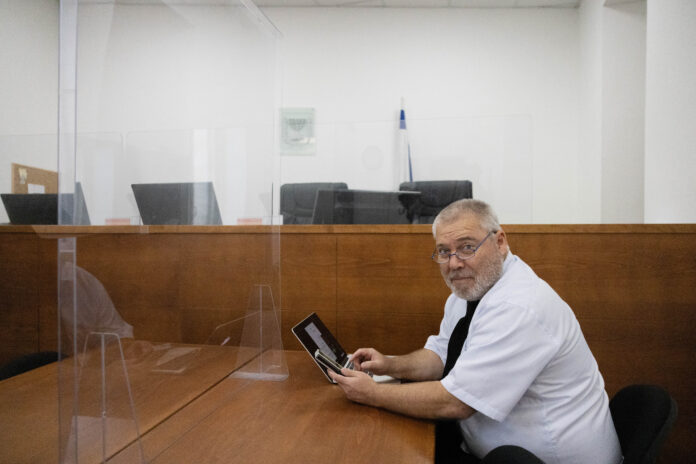
Gonen Ben-Yitzchak (born March 3, 1971) is an Israeli lawyer and social activist. In 1996, he was recruited by the Shin Bet as an intelligence officer in the Arab sector. In this capacity, he was entrusted with the task of recruiting and handling spies inside the Palestinian terrorist organizations. In 2002, he was appointed deputy coordinator of the District of Ramallah. He commanded the area during Operation Defensive Shield and was involved in the 2002 arrest of Marwan Barghouti.
Gonen was also the handler of Mosab Hassan Yousef (“the Green Prince”), the son of Sheik Hassan Yousef, one of the cofounders of Hamas. Mosab ranked among the top moles inside Hamas and worked for the Shin Bet for nearly a decade, thwarting many terrorist attacks.
The last time we spoke was in 2014, following the release of the documentary The Green Prince, which told the story of Mosab Hassan Yousef. Since then, you’ve been involved in a lot of other things.
Yes. Many other things.
In addition to becoming an attorney, I understand that you’re leading the protest movement against judicial reform.
No. I wouldn’t say that. But I’m one of the founders of one of the organizations involved in the protest movement.
So you’re on the left of the issue of judicial reform.
I don’t think it’s a matter of right and left because there are many right-wing supporters who are against it, and I believe that the late Menachem Begin wouldn’t agree with it either. I think it’s about how you define yourself on what I would call the “democratic scale.” There are even people on the right who understand that the only reason why Netanyahu wants the reform is to postpone his verdict and put some pressure on the legal system. Netanyahu is a long-time supporter of the legal system and the Supreme Court, even working to protect them. I don’t think that ideology has changed; it’s simply his legal problems that have led to his current position. It’s certainly more complicated than just right and left.
What isn’t complicated is the fact that Israel has a unique judicial system because it doesn’t have a constitution. Many people in the United States misconstrue judicial reform in Israel because of the differences between the two systems.
I agree. There’s a big difference.
In the US, the elected politicians appoint the judges. Then there’s the Constitution, to which they are bound, the purpose of which is to protect democracy. To me, Israel seems almost like a judicial dictatorship because the elected officials are blocked at every turn.
That’s not true. If you look at the things that were blocked by the Supreme Court, you’ll see that there are only a very small number of them. Israel’s Supreme Court hears about 10,000 cases every year. By contrast, the US Supreme Court hears fewer than 100 cases a year. The total number of cases in which the Israeli Supreme Court ruled against a government decision is probably 20 over the past two or three decades, which is a very small percentage. What usually happens is that the politicians—of all parties—find it easier to not bring things before the Supreme Court; then if the Court later decides against them, they yell that the Court doesn’t let them do anything. The politicians really do have the power to decide whatever they want unless it drastically opposes some of Israel’s Basic Laws, and it’s very rare for the Supreme Court to get involved.
To read more, subscribe to Ami




















